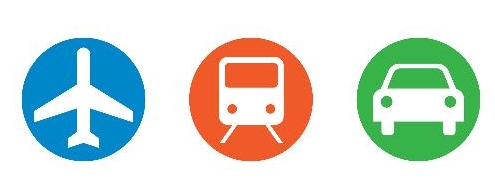Let me begin this writing with the title from the 1987 movie “classic,” Planes, Trains, and Automobiles. It was and is a favorite of mine, and starred Steve Martin and the late John Candy. Without going into a movie critique, let me simply borrow two modes of transportation and portray a silly conversation.
Imagine the plane saying this to the train:
“You’re so slow, cautious and rigid! All you can do is conform and stay on one course (the tracks). When things like a crisis comes up, or a new opportunity to explore new things, you just carry on in the same rut, going on the same path. Why can’t you be more like me, free of the slow and predictable, and more willing to explore and try new things?”
Now in response imagine this rebuttal from the train:
“You are so disorganized and unpredictable. One moment you are going a straight direction and I can count on you; but then you’re going up and then down, and even around in circles. Often I cannot keep up with you, and you disappear out of sight. I’m so confused, and frankly scarred and hurt by your randomness! Why can’t you be more like me?”
The reason this would be a silly conversation is this (besides the fact two metal objects cannot talk) is that each mode of transportation is what they are. By design, each fits its place and purpose in this world and neither can act or willfully become like the other. They are who they are.
This silly conversation between two different modes of transportation can help illustrate the way spouses, and even those who are seriously dating, see each other and how they become confused and frustrated with one another over time.
Differences in a Christian Marriage
Now let’s imagine the initial conversation but instead of trains and planes, it’s two people speaking to one another:
One partner says this to the other:
“You’re so predictable, slow and boring. You get up and do the same thing day after day. When I question why you can’t be more flexible in your routine or if I ask to try something new, you seem to get upset. And when we must make decisions about things like a new refrigerator, vacation spot or just going out to a new restaurant, you seem to spend days researching and analyzing if it is a good decision. Don’t you trust me? Do you have to be so selfish and controlling?”
In response the other partner may say this:
“I don’t think you are as careful as you should be. Time and money matter. I’d rather make a slow and wise decision rather than be impulsive and make a bad decision. Besides you seem so random and unpredictable to me. I look forward to certain things in life that mean something and you seem to disrespect me and take us off the “road” into areas that I don’t like or trust. I think you are selfish and reckless!”
Over time, these conversations can create conflict in a relationship. Some partners are so hurt and mad at the other over these accusations that it impacts the home to the point of arguing and ignoring the other, or to the point of divorce.
But let me give you a graceful perspective: the “accusations” against the other are really descriptions of differences between people. Just as the difference between a plane and a train can be described in simple and obvious words, so partners recognize they are different people – but, unfortunately, with a lot of emotion and frustration.
In counseling with couples, I begin with the suggestion that possibly many of the points accusation might really stem from the fact they are two different people. And instead of framing the labels in negative and hurtful terms, perhaps they can begin to see and accept these differences as unique, and a gift to the relationship.
Over time, I find that as partners recognize and accept their difference in a more welcoming tone, they can then work together to incorporate and coordinate their differences in a unified and loving way.
Isn’t this what the US Postage Service does? They recognize and accept there are many ways to move the mail; it takes planes, trucks, Jeeps, and people on the sidewalks to deliver the mail. Each portion of the work is vital to the whole process, and together the task gets done efficiently. The same coordination, effectiveness and satisfaction are possible in the home when differences are embraced.
Christian counselor Dr. Douglas Frey believes in Biblical principles and bringing forth God’s grace in meetings and sessions. Call or email Douglas Frey Ph.D. (952-920-2789). He is a licensed Christian counselor serving individuals and families in Eden Prairie and nearby Chanhassen, Chaska, Shakopee, Minneapolis, Edina, Minnetonka and other Twin Cities Western Suburbs.

